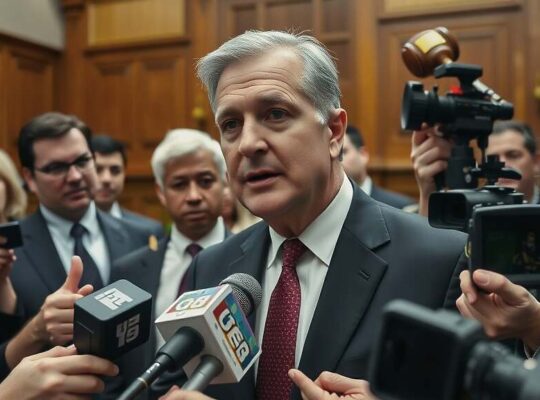The German government, spearheaded by Environment Minister Carsten Schneider (SPD), is signaling a firm commitment to endorse the European Commission’s ambitious proposal for a 90% reduction in greenhouse gas emissions by 2040. This stance, articulated to the Funke-Mediengruppe newspapers, emphasizes a desire for unified European action and a level playing field within the bloc. While Minister Schneider expresses cautious optimism regarding negotiations with potentially resistant member states, the position underscores a potentially fraught path toward achieving the target.
Reports suggest prior disagreements between Germany and France had previously hindered consensus on the intermediate climate goals for 2040, highlighting underlying tensions surrounding the economic implications of such stringent targets. The current push for endorsement now arrives against a backdrop of shifting geopolitical dynamics, with Schneider framing the policies of US President Donald Trump as a surprising opportunity for the EU. Trump’s apparent backtracking on renewable energies and future technologies, according to the Minister, positions Europe – alongside China – as a frontrunner in clean technology development and presents a chance for job creation. This perspective is delivered with an implicit rebuke of Trump’s recent assertion that climate change is a “hoax” a statement Schneider characterized as undermining the foundations of enlightenment principles.
The Minister’s commentary has also touched upon the recent climate neutrality commitment made by Hamburg through a public referendum, aiming for the goal by 2040. While acknowledging the significant challenge faced by the Hamburg senate in implementing this commitment, Schneider reiterated Germany’s national target of climate neutrality by 2045, expressing confidence in its attainability.
This intensified push for climate action is inextricably linked to a prior ruling by Germany’s Constitutional Court. The court mandated an accelerated timeline for achieving climate neutrality, initially setting a 2050 deadline which the previous coalition government advanced to 2045. The court’s reasoning centered on the need to safeguard the freedoms of future generations by managing Germany’s remaining “CO2 budget”. Currently, the Constitutional Court is reviewing a constitutional complaint advocating for even more stringent climate goals, potentially adding further pressure on the government’s approach. The diverging ambitions between national, regional and supranational climate ambitions present a complex web of political and economic considerations as Germany navigates its place in the evolving global climate landscape.












